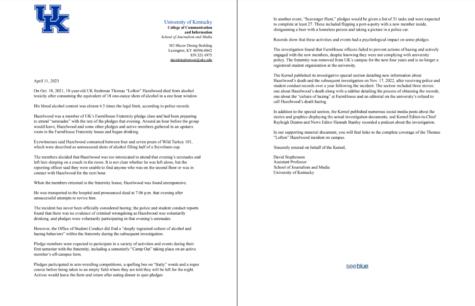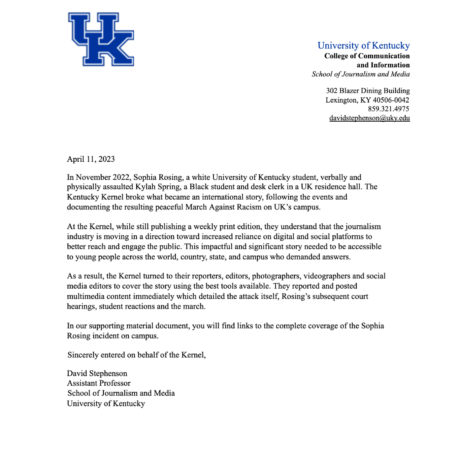Acute myeloid leukemia in first remission? Learn about an important treatment option today
April 22, 2022
(BPT) – For the more than 20,000 patients diagnosed with acute myeloid leukemia (AML) in the U.S. each year, managing and coping with disease symptoms can be incredibly difficult.
AML, a rare blood cancer, causes the buildup of abnormal white blood cells in the bone marrow, which can interfere with normal blood cell production, resulting in decreased healthy red and white blood cells and platelets.
Many AML patients tend to present with non-specific symptoms associated with more common ailments like the flu. AML World Awareness Day (April 21) is a reminder to look into symptoms you may otherwise brush off. According to the American Cancer Society (ACS), AML symptoms can include:
- Fever
- Easy bruising or bleeding
- Shortness of breath
- Weight loss or appetite
- Weakness or feeling tired
- Red or purple pinpoint spots on the skin
Research has also found that the average age at first diagnosis of AML is around 68 and it is slightly more common among men than women.
“Older Americans must be vigilant about any changes in their health and behaviors,” said Dr. George Yaghmour, assistant professor of Clinical Medicine at USC Keck School of Medicine. “Seeing a doctor about possible AML symptoms may help to detect — and, more importantly, treat — AML in its early stages before it rapidly progresses.”
If you or a loved one are experiencing any of these symptoms, see a doctor.
Prevalence and risk factors
AML is the most common type of acute leukemia in adults and makes up 31% of all adult leukemia cases, according to the American Society of Clinical Oncology. While anyone can develop AML, particularly as they age, some factors increase the risk of developing this condition. These risk factors include:
- Smoking
- Exposure to radiation or certain cancer-causing chemicals
- Having certain blood disorders, such as chronic forms of leukemia
- Having a family history or genetic syndrome
If you have any of these risk factors, you should consider talking with your doctor.
Current treatments and challenges
Prior to 2018, treatment options were limited for people living with AML, but the AML treatment landscape has been rapidly evolving with new treatment options in recent years. In particular, some hematologists are exploring continued treatment as an alternative for patients who cannot proceed to stem cell transplant. Continued treatment is a post-remission option that may help adult AML patients live longer.
Frontline treatments like chemotherapy and others can be effective in getting patients into remission, however many patients will unfortunately relapse following treatment.
“Current treatments have left a gap in care for AML patients, who need innovative, continued treatment options that can prolong overall survival,” said Dr. Yaghmour.
Prolonging survival
There is an oral treatment available for AML patients in first remission who may not proceed to transplant due to either clinical eligibility or non-clinical reasons such as patient preference or caregiver support. This therapy may provide patients a better chance at living longer.
Onureg® (azacitidine) tablet is the first and only FDA-approved continued AML therapy indicated for continued treatment of adult patients with AML who achieved first complete remission (CR) or complete remission with incomplete blood count recovery (CRi) following intensive induction chemotherapy and are not able to complete intensive curative therapy. This oral medication also gives patients the option of treatment in the privacy of their own home.
As with any medication, it is important to discuss possible side effects that may occur with Onureg with your doctor, including the most common symptoms such as nausea and vomiting, diarrhea, tiredness or weakness, constipation, stomach area (abdominal) pain, pneumonia, joint pain, decreased appetite, pain in arms or legs, and dizziness. Find the complete list of possible side effects in Onureg’s Prescribing Information here.
See additional Onureg Important Safety Information here.
“Ultimately, we know that most patients with AML will face a relapse or progression of disease despite best available treatment,” said Dr. Thomas William LeBlanc, hematologic oncologist and associate professor of medicine at Duke Cancer Institute in Durham, North Carolina. “As a hematologist, my primary goal in this setting is to delay the progression of the disease and to better the patient’s probability of survival. Continued therapy plays an important role in helping to provide adult patients with AML a chance at living longer.”
If you’re living with AML, talk with your doctor and see if Onureg is suitable for you. To learn more, visit ONUREG.com.
IMPORTANT SAFETY INFORMATION
What is ONUREG®?
ONUREG® is a prescription medicine used for continued treatment of adults with acute myeloid leukemia (AML) who had a first complete remission (CR) following intensive induction chemotherapy with or without recovery of your blood cell counts, and who are not able to complete intensive curative therapy. It is not known if ONUREG® is safe and effective in children under 18 years of age.
Do not take ONUREG® if you:
are allergic to azacitidine or any of the ingredients in ONUREG®. See the Patient Information for a complete list of ingredients in ONUREG®.
Before taking ONUREG®, tell your healthcare provider about all of your medical conditions, including if you:
- have kidney or liver problems.
- are pregnant or plan to become pregnant. ONUREG® can harm your unborn baby.
- Females who are able to become pregnant:
- Your healthcare provider should perform a pregnancy test before you start treatment with ONUREG®.
- You should use effective birth control (contraception) during treatment and for at least 6 months after your last dose of ONUREG®.
- Tell your healthcare provider right away if you become pregnant during treatment with ONUREG®.
- Males with a female sexual partner who can become pregnant:
- You should use effective birth control (contraception) during treatment and for at least 3 months after your last dose of ONUREG®.
- are breastfeeding or plan to breastfeed. It is not known if ONUREG® passes into your breast milk. Do not breastfeed during treatment and for 1 week after your last dose of ONUREG®.
Tell your healthcare provider about all the medicines you take, including prescription and over-the-counter medicines, vitamins, and herbal supplements.
How should I take ONUREG®?
- Take ONUREG® exactly as your healthcare provider tells you to take it.
- Your healthcare provider will prescribe an anti-nausea medicine for you to take to help prevent nausea and vomiting during your treatment with ONUREG®.
- Take the anti-nausea medicine 30 minutes before each dose of ONUREG®.
- Your healthcare provider may decide to stop the anti-nausea medicine after your second cycle of ONUREG®, if you do not have any nausea or vomiting.
- Take ONUREG® by mouth 1 time each day beginning on Day 1 through Day 14 of each 28-day cycle.
- Take ONUREG® with or without food at about the same time each day.
- Swallow ONUREG® tablets whole. Do not cut, split, crush, or chew the tablets.
- If the powder from ONUREG® tablets comes in contact with your skin, wash the area well right away with soap and water. If the powder from ONUREG® tablets comes in contact with your eyes or mouth (mucous membranes), flush the area right away with water.
- If you miss a dose of ONUREG®, or if you do not take your dose at the usual time, take the dose as soon as possible that day. Take your next dose at the regular time the next day. Do not take 2 doses on the same day to make up for a missed dose.
- If you vomit after taking a dose of ONUREG®, do not take another dose on the same day. Take your next dose at the regular time the next day.
What are the possible side effects of ONUREG®?
ONUREG® can cause serious side effects, including:
- New or worsening low white blood cell counts (neutropenia). New or worsening low white blood cell counts are common but can also be severe during treatment with ONUREG®. If your white blood cell counts become very low, you are at increased risk for infections. Your healthcare provider will check your white blood cell counts before and during treatment with ONUREG®. Your healthcare provider may prescribe a medicine to help increase your white blood cell count if needed.
Tell your healthcare provider right away if you get any of the following symptoms:
- fever or chills
- body aches
- feeling very tired or weak
- unusual headaches
- New or worsening low platelet counts (thrombocytopenia). Low platelet counts are common but can also be severe during treatment with ONUREG®. Your healthcare provider will check your platelet counts before and during treatment with ONUREG®. Tell your healthcare provider right away if you have any unusual bruising or bleeding. Your healthcare provider may change your dose or tell you to stop taking ONUREG® if you have low blood cell counts.
ONUREG® may cause fertility problems in males and females, which may affect your ability to have children. Talk with your healthcare provider if you have concerns about fertility.
The most common side effects of ONUREG® include:
- nausea and vomiting. See “How should I take ONUREG®?”
- diarrhea. You may need to be treated with anti-diarrheal medicines.
- tiredness or weakness
- constipation
- stomach area (abdominal) pain
- pneumonia
- joint pain
- decreased appetite
- pain in arms or legs
- dizziness
These are not all of the possible side effects of ONUREG®. Call your doctor for medical advice about side effects. You may report side effects to FDA at 1800FDA1088.
General information about the safe and effective use of ONUREG®.
Medicines are sometimes prescribed for purposes other than those listed in a Patient Information leaflet. Do not use ONUREG® for a condition for which it was not prescribed. Do not give ONUREG® to other people, even if they have the same symptoms you have. It may harm them. You can ask your pharmacist or healthcare provider for information about ONUREG® that is written for health professionals.
Please see full Prescribing Information and Patient Information for ONUREG®.
Individual patient experiences may vary.
ONUREG is a trademark of Celgene Corporation, a Bristol-Myers Squibb Company.
© 2022 Bristol Myers Squibb. All rights reserved. 2011-US-2200114. 04/22.



















































































































































